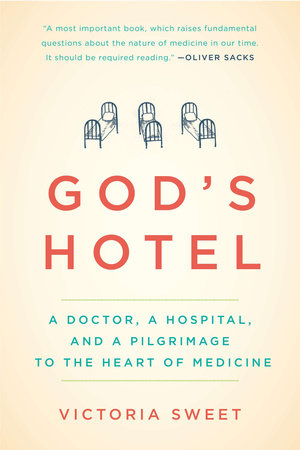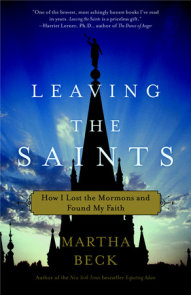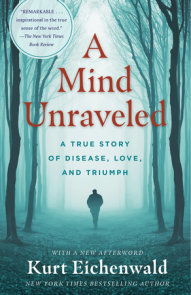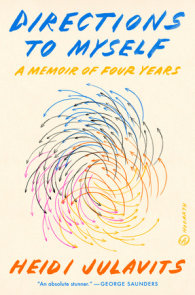READERS GUIDE
Questions and Topics for Discussion
INTRODUCTION
More than twenty years ago, Dr. Victoria Sweet arrived at San Francisco’s Laguna Honda Hospital, intending to stay for a brief time. A descendant of the Hôtel-Dieu (God’s Hotel) that cared for the sick poor in the Middle Ages, Laguna Honda was the last almshouse in the country. Ballet dancers and rock musicians, professors and thieves-“anyone who had fallen, or, often, leapt onto hard times” and needed extended medical care-ended up there.
At Laguna Honda, lower-tech but human-paced, Sweet had the opportunity to practice a kind of “slow medicine” that has almost vanished, and falling under the hospital’s spell, she decided to stay. Gradually, her remarkable patients transformed the way she understood medicine. Alongside the modern view of the body as a machine to be repaired, they evoked an older idea, of the body as a garden to be tended. God’s Hotel is their story, and the story of the hospital itself, which-as efficiency experts, politicians, and architects descended, determined to turn it into a modern “health care facility”-revealed its own surprising truths about the essence, cost, and value of caring for body and soul.
ABOUT VICTORIA SWEETA member of the medical staff at Laguna Honda Hospital in San Francisco for more than twenty years, Victoria Sweet is an Associate Clinical Professor of Medicine at the University of California, San Francisco, and a prize-winning historian with a Ph.D. in history and social medicine. God’s Hotel has been praised by Oliver Sacks, Jerome Groopman, and numerous other medical authorities; has won numerous awards; and has deemed “hard-core subversion” (The New York Times), “radical and inspiring” (Vanity Fair) and “subversive in all the best ways” (Health Affairs).
DISCUSSION QUESTIONSThroughout the book, Victoria Sweet talks about what she learns from her patients. How do their stories inform the author’s vision of her profession?With whom did you identify more as you read her account, the patients or the nurses and doctors? Why?In many ways the workings of Laguna Honda go against modern medical culture and standards. Can you find parallels in your own life, in which you have had experiences that ran counter to the norm or to your own expectations? How did you respond?In what ways does Dr. Sweet criticize modern medical practice? Are there ways in which her critique is applicable to society in general?Sweet invokes two metaphors for the practice of medicine: the contemporary one, of a mechanic repairing a broken machine; and an older, “premodern” one, of a gardener tending a garden. What are the strengths and limitations of each? Which do you gravitate to, and why?What is “slow medicine”? Have you had any experiences of a “slow medicine” approach in your own life? Have you experienced parallel “slow” approaches in other endeavors of which you have been a part?What does Sweet mean by “the efficiency of inefficiency”? Have you encountered this phenomenon in your own life? Where and when?A major theme that runs through the book is that of community. How is community created? Who creates it? How is it sustained? What parallels can you envision between a hospital and other settings-a school, a college, a corporate workplace?Another major theme that runs through the book is hospitality. What does hospitality mean in the context of the book? How might this translate from a hospital setting to other settings?Dr. Sweet makes a pilgrimage to Santiago de Compostela in Spain. How does this pilgrimage play out in her life? What role does discernment play in her life? What role does it play in yours?




















